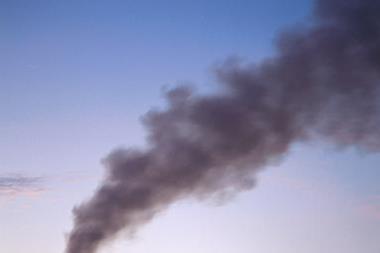An emissions trading scheme like the one already in place in Europe could pose a serious financial risk to some US companies, found a new report
If US companies were required to purchase carbon credits under a cap and trade emissions trading scheme, like the one in place in Europe, some of them would take a big hit on their bottom line, according to a new report.
Trucost analysed the potential financial implications of applying a carbon price to emissions for companies listed on the S&P 500.
The findings come as legislation moves through the US Congress to combat climate change by reducing the amount of greenhouse gases emitted into the atmosphere from American power plants and industrial processes.
The research found that direct emissions in 2007 by the companies in the S&P 500 were some 2,173m tonnes of carbon dioxide. That is more than all the car, truck, bus and aircraft emissions in the US.
The cost of carbon for the S&P 500 would total over $92.8bn, said Trucost, if a market price of around $28 per metric tonne of emissions were applied.
“Now is the time for companies to begin measuring and reducing their carbon emissions to ensure they are well positioned to minimize the risk of climate change regulation.
Simon Thomas, chief executive of Trucost
The Utilities sector, which is responsible for some 59% all the greenhouse gasses emitted by the S&P 500, would face the highest financial exposure to carbon costs. If utility firms were forced to pay for each metric tonne of emissions carbon costs could reduce their combined earnings by 45%, said the survey.
‘Carbon costs would amount to less than 1% of earnings for 203 companies analysed, while 71 companies could see earnings fall by 10% or more,’ found the report.
Jon Lukomnik, program director of the Investor Responsibility Research Center Institute (IRRC), which was also involved in the study, said: ‘The analysis makes clear that a cap-and-trade system is a real game changer. A number of companies will have to reform how they think about carbon emissions and the associated costs, or their bottom line will suffer greatly.’
He said the American Clean Energy and Security Act of 2009 could have a ‘profound, long-lasting impacts on company balance sheets’.
Simon Thomas, chief executive of Trucost, added: ‘Companies that are more carbon efficient than sector peers across their own operations and supply chains stand to gain a competitive advantage. Now is the time for companies to begin measuring and reducing their carbon emissions to ensure they are well positioned to minimize the risk of climate change regulation. Already we are seeing increased interest from investors looking to reduce their own risk by positively selecting those companies with lower carbon emissions, and this is set to increase in the future.’



















No comments yet